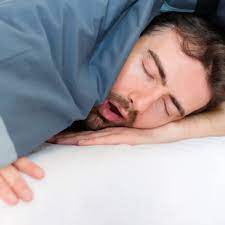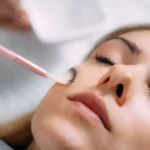Sleep disorders can affect more than just rest; they often disrupt focus, mood, and overall health. While occasional sleepless nights are common, ongoing issues may signal a deeper concern that requires professional care. Recognizing the signs of sleep disorders is the first step toward recovery, and knowing when to visit a sleep specialist helps you get the right diagnosis and treatment. Here are signs it’s time to see a sleep specialist:
Difficulty Sleeping
Occasional sleepless nights happen to everyone. Chronic sleep difficulties signal potential sleep disorders that require professional attention. Insomnia, a common sleep condition, involves regular trouble falling asleep, staying asleep, or waking up too early.
You should contemplate seeing a sleep specialist if you experience sleep difficulties three or more nights per week for three months minimum. This pattern indicates your sleep problems are not temporary and may require specialized treatment. Sleep specialists can identify underlying causes and develop targeted treatment plans. Persistent insomnia often stems from multiple factors, including stress, medical conditions, medications, or poor sleep habits. A sleep specialist can evaluate these contributing factors and recommend appropriate interventions.
Loud Snoring
Loud, regular snoring often indicates obstructive sleep apnea, a serious sleep disorder. Sleep apnea causes your breathing to stop and start repeatedly during sleep. This interrupts your sleep cycles and reduces oxygen levels in your blood.
Sleep apnea symptoms include loud snoring, gasping for air during sleep, and morning headaches. Your bed partner may notice these breathing interruptions before you do. Left untreated, sleep apnea increases your risk of heart disease, stroke, and other serious health problems. A sleep specialist can conduct tests to diagnose sleep apnea and determine its severity. Treatment options include continuous positive airway pressure (CPAP) machines, oral appliances, or lifestyle changes.
Daytime Sleepiness
Feeling tired during the day despite getting adequate nighttime sleep suggests a sleep disorder. Excessive daytime sleepiness interferes with work, driving, and social activities. This symptom may indicate narcolepsy, sleep apnea, or other sleep conditions.
Narcolepsy causes uncontrollable episodes of falling asleep during normal waking hours. These sleep attacks can happen at any time, including during conversations or while driving. Narcolepsy may also cause sudden muscle weakness.
A sleep specialist can perform daytime sleep studies to evaluate excessive sleepiness. These tests measure how quickly you fall asleep during scheduled nap times. The results help diagnose specific sleep disorders and guide treatment decisions.
Unusual Sleep Behaviors
Abnormal movements or behaviors during sleep often indicate movement disorders. Restless leg syndrome causes uncomfortable sensations in your legs and an irresistible urge to move them. These symptoms generally worsen when you try to fall asleep.
Other unusual sleep behaviors include sleepwalking, sleep talking, or sleep eating. These parasomnias can be dangerous and disrupt your sleep quality. Movement disorders during sleep may also indicate underlying neurological conditions that require evaluation. Sleep specialists can identify the specific type of movement disorder affecting your sleep.
Consult Specialists for Sleep Disorders
Sleep disorders are treatable conditions that significantly improve with proper diagnosis and care. Recognizing these warning signs helps you determine when a professional evaluation is necessary. Sleep specialists have the expertise and tools needed to identify your specific sleep condition. They can also develop an effective treatment plan. Contact a trusted provider near you to book an appointment with sleep specialists for a professional evaluation of your symptoms.



